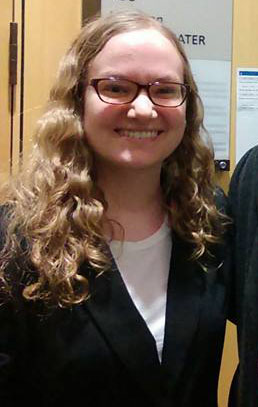Celebration of Scholars
Double Standards Regarding Sex and Gender in Steinbeck's East of Eden
 Name:
Dana Ehrmann
Name:
Dana Ehrmann
Major: English and Film Studies
Hometown: West Allis, WI
Faculty Sponsor: Alyson Kiesel
Other Sponsors:
Type of research: Senior thesis
Abstract
In East of Eden, gender roles are strictly enforced for women, but not
for men. This prevents unconventional Cathy from inclusion in the idea that
each person possesses good and evil, but chooses which to act on. Using
feminist and deconstructionist perspectives, I consider the traditional
binaries regarding sex, one’s biological traits, and gender, one’s socially
constructed traits, and the moments in which they flip or hold true. I argue
that Cathy’s qualities of aggression, sexuality, and independence make her
androgynous; she consists of masculine and female qualities. She is punished
and unable to overcome her given evil for not wholly conforming to society’s
ideal of women. I also examine the way in which Lee is androgynous through softness,
anti-sexuality, and domesticity, but is accepted. Considerations of Asian
religion bolster support for Lee, while examinations of the perceptions of
prostitution show that women are not set up to succeed like men, but to serve
them. In East of Eden, Cathy’s
punishment for refusing to be defined by society’s idea of femininity and Lee’s
acceptance demonstrate the divide in the way androgyny is perceived; it is
accepted in men but not in women, stripping Cathy of her ability to do good.
Submit date: March 12, 2015, 7:22 p.m.
